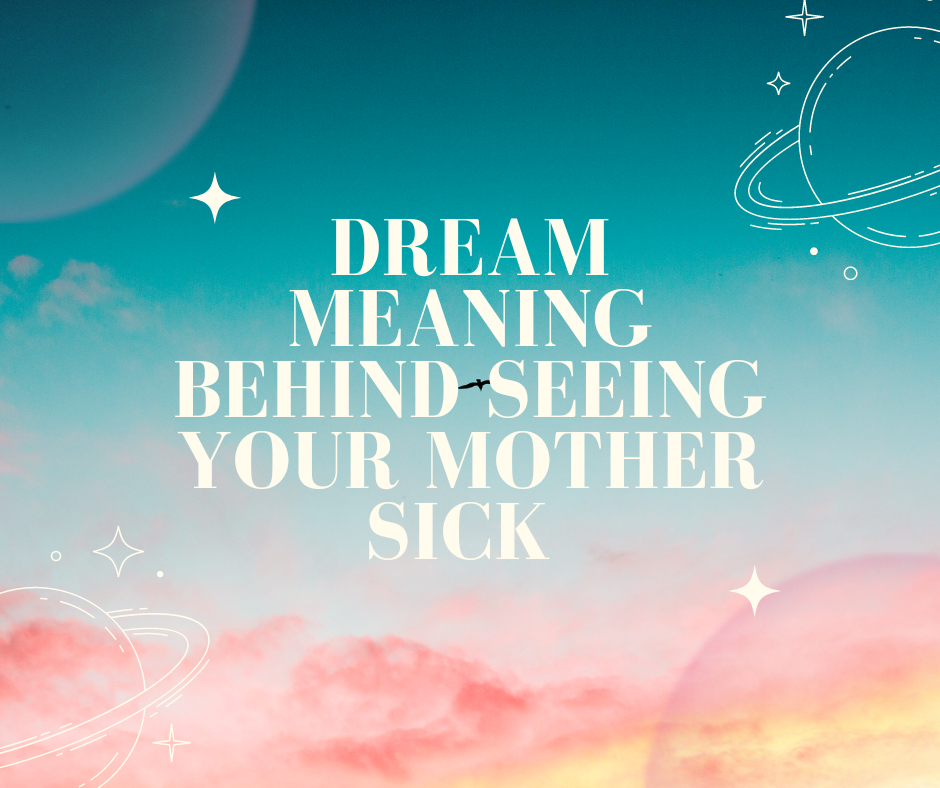
Dreaming of getting shot at: Have you ever experienced the unsettling feeling of repeatedly dreaming about getting shot? While dreams can encompass a wide range of themes and emotions, recurring dreams can leave us questioning their underlying cause and significance. In this blog post, we will delve into the causes of recurring dreams involving being shot, aiming to unravel the psychological factors, external influences, and symbolic meanings associated with such dreams. By understanding the reasons behind these dreams, we can gain insight into our subconscious minds and uncover potential unresolved issues that may be contributing to their recurrence. In this blog post, we will delve into the intriguing world of dreams about getting shot, exploring the meanings behind 20 different scenarios. Whether you were shot by an unknown attacker, a loved one, or even yourself, each scenario holds a unique significance and can shed light on various aspects of your subconscious mind. So, let us embark on this journey of deciphering the hidden messages behind these dreams and gaining a deeper understanding of ourselves.
Dream About a Cat Turns Into a Human: Unraveling the Mysterious Transformation
Exploring the Meaning of Dream about Black Soil
Exploring the Spiritual Meaning of Ash Color: A Guide to Understanding its Symbolism
Scenario 1: Being Shot in a Dream by an Unknown Attacker
In this scenario, you find yourself under attack, being shot by an unknown assailant in your dream. This dream can be particularly unsettling, leaving you with a sense of fear and vulnerability upon waking. But what does it mean?
The dream of being shot by an unknown attacker often symbolizes hidden fears or anxieties that are lurking within your subconscious mind. It suggests that there may be unresolved conflicts or unresolved issues in your waking life that are causing you distress. This dream could be a subconscious warning sign that these issues need to be addressed in order to restore a sense of peace and security.
To learn more about this scenario and its implications, check out this article on overcoming hidden fears.
Scenario 2: Being Shot by a Loved One in a Dream
Imagine a dream where someone dear to you takes on the role of the assailant, shooting you. This scenario can be especially unnerving, as it involves someone you trust betraying you in your dream world. So, what could this dream signify?
When you dream of being shot by a loved one, it is not necessarily an indication of genuine danger or malice from that person. Instead, this dream scenario often represents feelings of betrayal, conflict, or emotional pain within the relationship itself. It can symbolize unresolved issues or a need for better communication and understanding between you and your loved one.
For tips on improving relationships and enhancing communication, refer to this guide on effective communication.
Scenario 3: Surviving a Gunshot Wound in a Dream
Survival is a powerful theme in dreams, even in the face of danger. If you dream of being shot but manage to survive the gunshot wound, it can indicate inner strength and resilience in the face of adversity.
This dream suggests that you have the ability to endure and overcome challenges in your waking life. It serves as a reminder that you possess the necessary resilience to face and conquer any obstacles that come your way. Embrace this dream as a testament to your inner strength and unwavering spirit.
Learn how to overcome challenges and build resilience with this insightful guide on resilience.
Scenario 4: Being Shot in a Public Place in a Dream
Picture yourself in a crowded place, only to be shot in your dream. Dreams of being shot in public often point to a fear of judgment or criticism from others. It suggests that you may be apprehensive about being exposed or vulnerable in social situations.
This dream scenario invites you to reflect on any insecurities or concerns you may have about how you are perceived by others. It encourages you to embrace authenticity and let go of the fear of judgment, allowing you to live more freely and confidently in your waking life.
Discover techniques to boost self-confidence with this guide on building self-esteem.
Scenario 5: Shooting Others in a Dream
Dreaming about shooting others can be unsettling and leave you wondering about its meaning. Such dreams, however, should not be taken as an indicator of violent tendencies or malicious desires in your waking life. Instead, they often symbolize assertiveness or a need for power and control.
When you dream of shooting others, it may be a reflection of underlying feelings of frustration or anger that are not being expressed or acknowledged in your day-to-day life. This dream encourages you to explore healthy outlets for these emotions, such as assertiveness training or professional support, to address any underlying issues and promote healthier coping strategies.
To learn effective ways of managing anger and frustration, refer to this helpful guide on anger management.
Scenario 6: Being Shot in a or Battle Dream
Dreams of being shot in a war or battle scenario can be vivid and intense, leaving you with a sense of anxiety or fear. These dreams often symbolize inner conflicts or the need for resolution and harmony within yourself.
The dream may indicate that you are engaged in an internal struggle, torn between different aspects of your personality or conflicting goals and desires. It could be a call to examine these conflicts and find ways to integrate and reconcile them, leading to inner peace and personal growth.
Explore methods for resolving inner conflicts and achieving harmony with this insightful guide on self-reflection and personal growth.
Scenario 7: Witnessing a Shooting in a Dream
Witnessing a shooting in your dream, even if you are not the target, can evoke strong emotions and leave you feeling disturbed. This dream scenario often represents a heightened sense of vulnerability or powerlessness in your waking life.
Dreams of witnessing a shooting may suggest that you feel overwhelmed or unable to protect yourself or others from certain situations or individuals. This dream can serve as a reminder to evaluate the sources of these feelings and proactively seek ways to regain a sense of empowerment and security.
Discover effective strategies to enhance personal safety and assertiveness through this helpful guide on personal safety.
Scenario 8: Escaping Being Shot in a Dream
Imagine a dream where you successfully evade being shot. Dreams of escaping being shot symbolize a desire for freedom, escape, or avoidance of a difficult situation or relationship in your waking life.
This dream encourages you to explore the aspects of your life that leave you feeling trapped, suffocated, or emotionally drained. It is a gentle nudge to identify areas where you can break free from restrictions and pursue a path that aligns with your true desires and happiness.
Scenario 9: Being Shot and Dying in a Dream
Dreams involving death can be distressing, particularly when you are shot and die in the dream. However, such dreams rarely foreshadow actual physical demise. Instead, they often represent profound transformations and changes in your waking life.
When you dream of being shot and dying, it signifies the end of a chapter or phase in your life. It suggests that you are letting go of old beliefs, habits, or relationships and making way for personal growth and renewal. Embrace this dream as a sign of positive change and embrace the new possibilities that lie ahead.
Scenario 10: Being Shot in a Dream by an Animal
Surprisingly, dreams of being shot by an animal do not usually indicate a literal threat from the animal kingdom. Rather, these dreams are metaphors for certain traits or characteristics associated with the animal involved.
For example, being shot by a lion in a dream may symbolize the need for courage and assertiveness, while being shot by a snake could denote hidden fears or emotions. It is essential to consider the specific animal and the associated traits to unlock the hidden message behind these dreams.
Discover the symbolic meanings of animals in dreams by referring to this insightful guide to dream symbolism.
Scenario 11: Being Shot by a Police Officer in a Dream
Dreams of being shot by a police officer can be confusing, given their role as protectors in society. However, in the realm of dreams, their presence can represent the need for discipline, authority, or regulation in your waking life.
When a police officer shoots you in a dream, it may signify a reflection of your fears or concerns about authority figures. This dream could also indicate a perceived need for stricter self-discipline or the presence of external rules and regulations in your current circumstances.
Scenario 12: Being Shot in a Dream at Work
Work is a significant part of our daily lives, so it’s natural for it to seep into our dreams. Being shot in a dream at work often relates to the stress or anxieties associated with your job or career.
This dream scenario might suggest that you are feeling overwhelmed, undervalued, or threatened in your workplace. It encourages you to assess the factors contributing to these negative emotions and seek ways to restore balance and satisfaction in your professional life.
Explore strategies for managing work-related stress and achieving job satisfaction with this informative guide on work-life balance.
Scenario 13: Being Shot in a Dream as a Form of Punishment
Dreams of being shot as a form of punishment may leave you feeling guilty or distressed upon waking. However, it is crucial to recognize that dreams often present exaggerated or metaphorical situations, and they do not necessarily reflect your true character or actions.
Dreams of punishment often symbolize feelings of guilt or remorse you may carry in relation to certain past actions or decisions. This dream scenario encourages self-reflection and the evaluation of past behaviors to seek forgiveness, make amends, and grow from these experiences.
Scenario 14: Being Shot in a Dream as a Sign of Rebellion or Resistance
Dreams of being shot can also carry significant symbolism related to rebellion or resistance. If you dream of being shot in such a context, it may represent your desire to challenge societal norms, expectations, or restrictions.
This dream is a reminder for you to honor your individuality, stand up for your beliefs, and embrace your authentic self. It encourages you to explore ways to express your uniqueness and challenge conventional thinking, even if it means diverging from the crowd.
Scenario 15: Being Shot in a Dream by a Supernatural Being
Dreams involving supernatural beings can be surreal and extraordinary. If you dream of being shot by a supernatural entity, be it a ghost, alien, or mythical creature, it unlocks a realm of spirituality and the unknown.
This dream suggests that you are on a spiritual journey or seeking answers beyond the physical realm. It invites you to explore your spiritual beliefs, connections, and the mysteries of existence, allowing for personal growth and insights along the way.
Scenario 16: Being Shot in a Dream by Yourself
Dreams of being shot by yourself can be puzzling, as it involves an apparent self-inflicted wound. These dreams often symbolize internal conflict, self-sabotage, or a need for self-reflection.
When you dream of shooting yourself, it signifies a desire for self-transformation or a subconscious call to address aspects of your personality or behaviors that no longer serve you. It encourages you to cultivate self-compassion and seek ways to let go of self-destructive patterns, enabling personal growth and positive change.
Scenario 17: Being Shot in a Dream as a Symbol of Vulnerability
Dreams of being shot can act as powerful metaphors, symbolizing vulnerability or emotional wounds. If you dream of being shot, it suggests that you may feel exposed, defenseless, or emotionally hurt in your waking life.
This dream scenario invites you to explore the sources of your vulnerability and consider ways to protect yourself emotionally. It encourages you to nurture your emotional well-being, establish healthy boundaries, and seek support from trusted individuals.
Scenario 18: Being Shot in a Dream as a Reflection of Real-Life Fears
Dreams often reflect our deepest fears and concerns. If you dream of being shot, it may represent specific fears or anxieties you have in your waking life.
This dream scenario serves as a reminder to confront and address these fears rather than allowing them to control your actions or hinder your personal growth. Through self-reflection and appropriate support, you can work towards overcoming your fears and living a more fulfilling and fearless life.
Scenario 19: Being Shot in a Dream as a Sign of Empowerment or Transformation
Dreams of being shot can also carry positive connotations, representing empowerment or transformation. These dreams often indicate that you are going through significant life changes or undergoing a process of personal growth.
Embrace this dream as a symbol of your strength, resilience, and ability to overcome obstacles. It encourages you to embrace these transformations with an open mind and heart, allowing yourself to evolve into the best version of yourself.
Scenario 20: Being Shot in a Dream as a Metaphor for Emotional Pain or Trauma
Dreams involving emotional pain or trauma can be intense and emotionally charged. If you dream of being shot, it may serve as a metaphor for emotional wounds or past traumas that continue to affect you.
This dream scenario invites you to confront and heal these emotional wounds by seeking appropriate support, such as therapy or counseling. It is essential to prioritize your emotional well-being and embark on a journey of healing and personal growth.
The Psychology Behind Dreams of Getting Shot
Exploring Trauma and Anxiety
One plausible cause for recurring dreams of being shot lies in the realm of trauma and anxiety. Traumatic experiences, whether recent or in the past, can profoundly affect our subconscious minds. These dreams may be a manifestation of our fears, anxieties, or unresolved emotions related to an event where we felt as though our life was threatened. Such dreams may serve as a mechanism for our minds to process and cope with the lingering psychological effects of trauma.
Unresolved Conflicts and Fears
Dreams have long been regarded as a window into our deepest thoughts, fears, and desires. Dreams of being shot can symbolize various unresolved conflicts and fears within our lives. It could reflect the struggles we are facing or the challenges we fear encountering. By analyzing the recurring theme of being shot, we may gain insight into the conflicts we need to address or the fears we need to overcome.
Symbolism and Personal Interpretation
Dreams often communicate through symbols and metaphors, allowing us to explore our subconscious in a unique way. Dreams of getting shot may carry allegorical meanings that differ from person to person. The experience of being shot could symbolize feeling attacked, betrayed, or emotionally wounded in waking life. By delving into personal interpretations of dreams, we can unlock deeper insights into our emotions and psychological state.
Dreams as a Reflection of Past Experiences
Our dreams are not isolated events; they are influenced by our experiences and memories. Dreams of being shot may be linked to past encounters related to violence, aggression, or danger. These dreams might serve as a reflection of our past experiences, bringing forth any unresolved emotions or fears tied to those events. Recognizing these connections can facilitate the healing process and enable personal growth.
The Impact of External Factors on Dream Content
While internal psychological factors play a significant role in dream content, external influences also shape the dreams we experience. Let’s explore how media, current events, and personal triggers can contribute to the recurring dreams of being shot.
Media Influences and Other Exposures
The media we consume often seeps into our subconscious minds, potentially influencing the content of our dreams. Exposure to violent movies, TV shows, or news reports can subconsciously manifest in our dreams, including the theme of being shot. Furthermore, video games or books filled with action and conflict may also impact the imagery and narratives of our dreams.
Current Events and Collective Consciousness
The collective consciousness of society can permeate our dreams, especially during times of widespread unrest or conflict. Current events that involve shootings, violence, or terror may find their way into the subconscious minds of individuals, triggering dreams relating to being shot. These dreams can be a reflection of our concerns about the state of the world and our place within it.
Personal Triggers in Everyday Life
Our dreams often draw inspiration from our waking life experiences and emotional triggers. Certain situations, objects, or even specific individuals can act as personal triggers for recurring dreams of being shot. Identifying these triggers and understanding their impact on our psyche allows us to develop strategies to address and potentially alleviate their influence on our dreams.
Common Themes in Dreams of Being Shot
While each individual’s dreams are unique, there are common themes and emotions associated with dreams of being shot. Understanding these themes sheds light on the internal struggles potentially represented in these dreams.
Powerlessness and Vulnerability
Dreams of being shot can often evoke feelings of powerlessness and vulnerability. Such dreams may symbolize situations in waking life where we lack control or perceive ourselves as defenseless. Exploring these themes within the context of our dreams can be an opportunity for personal empowerment and growth.
Fear of Failure and Inadequacy
Dreams involving being shot may also reflect an underlying fear of failure or inadequacy. Being shot can symbolize a sense of being criticized, judged, or attacked by others. These dreams may serve as a reminder to address our insecurities and strive for self-confidence.
Trust Issues and Betrayal
A recurring theme in dreams of being shot is often rooted in trust issues and betrayal. This imagery could indicate a fear of being hurt or deceived by others. By acknowledging these fears, we can work on building healthier relationships and fostering trust within ourselves and with others.
Feelings of Anger and Aggression
Dreams of being shot can sometimes be a manifestation of our repressed anger or aggressive tendencies. These dreams might serve as an outlet for these intense emotions or as a reminder to address and channel them in healthy ways. Recognizing and embracing our anger can lead to emotional healing and personal transformation.
Coping with Recurring Dreams and Their Emotional Impact
Recurring dreams of getting shot can take a toll on our emotional well-being and disrupt our overall quality of life. Here are some coping strategies to help manage these dreams and minimize their impact on our day-to-day experiences.
Journaling and Self-Reflection
Keeping a dream journal allows us to gain a deeper understanding of our recurring dreams. By recording our dreams and reflecting on their symbols, emotions, and contexts, we can unlock valuable insights into their underlying causes. Additionally, practicing mindfulness and self-reflection techniques in our waking life can help identify potential triggers for these dreams.
Seeking Professional Help
If recurring dreams of being shot significantly impact our daily lives or emotional well-being, seeking professional help may be beneficial. Consulting with a therapist or dream expert can provide us with guidance to unpack the underlying psychological factors contributing to these dreams. They can also assist in developing personalized coping mechanisms and strategies for dream management.
Sleep Hygiene and Stress Management
Creating a conducive sleep environment and practicing good sleep hygiene can promote better sleep quality and potentially reduce the occurrence of recurring dreams. Prioritizing relaxation before bedtime, engaging in calming activities, and minimizing exposure to stressful stimuli can all contribute to a more peaceful sleep. Effective stress management techniques, such as meditation and exercise, may also help alleviate the emotional impact of these dreams.
Imagery Rehearsal Therapy for Nightmare Reduction
For individuals whose recurring dreams of being shot escalate into nightmares, imagery rehearsal therapy (IRT) can be a useful intervention. IRT involves rewriting the narrative of the dream during waking hours, visualizing a more positive or empowering outcome. By rehearsing these alternative scenarios, we may gradually reshape the content of our dreams, ultimately reducing their frequency and intensity.
Conclusion
Dreams about getting shot hold a myriad of meanings, each shedding light on different aspects of ourselves and our lives. Whether you find yourself being shot by an unknown attacker, a loved one, or even yourself, these dreams serve as mirrors to our innermost fears, desires, and experiences. By unraveling the symbolism and messages behind these dreams, we gain valuable insights into our subconscious minds. Embrace the power of your dreams, and embark on a journey of self-discovery, growth, and transformation.
Don’t let your dreams remain a mystery! Reach out and explore the depths of your subconscious mind to better understand yourself and your life. Allow your dreams to guide you towards a more meaningful and fulfilling existence, where every experience, including being shot in dreams, adds to your personal growth and understanding.











